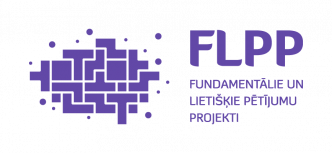
Implementation of the Evidence-Based Paediatric Caries Management Strategies in Latvian Clinical Practice - an Evidence Transfer Study
Aim
Description
In Latvia, dental caries (tooth decay) affects almost 100% of 12-year-olds. There is high quality, internationally-accepted primary evidence and guidelines derived from this, for managing the disease in children, avoiding pain and infection. However, this evidence is not widely used in Latvia. This project's overall objective is to improve the oral health of children through addressing the gap in knowledge for lack of use of these evidence-based paediatric caries management strategies. Evidence transfer and evidence implementation research methodologies will be used. The study is particularly important at the national level as it will improve children's oral health in the long term and reduce the healthcare burden. Still, it is also relevant at the international level as generating evidence for implementation will help other countries to achieve similar benefits. We will ensure a multidisciplinary approach by involving all dental team members (dentists, paediatric dentists, dental hygienists, dental assistants), paediatricians, family doctors, midwives, doulas, PEP mothers and stakeholders to ensure the evidence transfer and implementation of new caries management strategies for children.
To achieve that, this project consists of three complementary studies, each of which can be considered a single project on its own, which altogether will assure the evidence transfer and evidence implementation steps of the JBI Model (Jordan et al., 2019).
Scientific results will be used to inform decision-making bodies, facilitate behaviour change and enable the implementation of evidence-based paediatric dental care in Latvia.
Specific objectives
- to evaluate parents’ views on non-invasive and minimally invasive caries management strategies through qualitative-based investigation,
- to evaluate oral health professionals’ views on non-invasive and minimally invasive caries management strategies through qualitative research,
- to perform an economic evaluation of evidence-based caries treatment strategies compared to the traditional approach using prospective economic evaluation methodology, and
- to communicate with professionals to further explore the implementation of evidence-based paediatric caries management strategies in clinical practice and dissemination of our findings.





